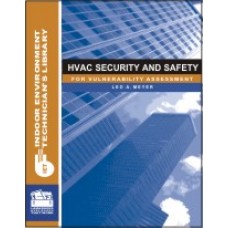
|
| Rocco DiBenedetto |
As a licensed and insured HVAC contractor in the Miami area, my technicians are often called to homes where a system has failed. And, after looking the system over, it’s easy to see that the previous work was done by an unlicensed worker. Sometimes the homeowner cannot locate the person responsible and calls us in frustration. Many times, the owner has already tried to get a repair reimbursed by the manufacturer, only to be told it was not installed by a licensed contractor, which voids the manufacturer’s warranty.
There are many more stories like this, and, unfortunately, even though there are laws and regulations against unlicensed contractors in most U.S. counties, enforcement is often slow or nonexistent. This leaves homeowners in precarious positions. Do they demand to see a license before hiring a contractor? And, even if they do ask for one, how do they know it’s valid or even real? It’s difficult for homeowners to know what to do and how to protect themselves from being taken advantage of.
As a legitimate HVAC contractor, we adhere to the rules and regulations passed by our local government in order to do business. Many of these regulations are meant to protect homeowners from unscrupulous and dishonest contractors. But, if the homeowner is unaware of the risks involved in using an unlicensed contractor, how is he or she able to make a good decision about hiring a company where workers have access to a home and its contents, often with intimate knowledge of the residents’ daily activities?
I have trained my technicians to address as many questions and concerns as possible to help homeowners feel comfortable using my company as their service contractor. And, while it’s true that money can be the reason some homeowners choose an unlicensed contractor, my feeling is that with the right knowledge, many homeowners will realize there is more to it than money.
Here is a list of topics technicians should discuss with homeowners to enforce the importance of licensed contracting.
• Warranties — Unlicensed contractors cannot perform warranty work unless the manufacturer has agreed in writing to let a specific person do the work. Be wary because some licensed contractors sub the work to unlicensed contractors. Ask for the license (not a tax receipt) and make sure it lists the person who is doing the work. Unlicensed work on your system will most likely void the manufacturer’s warranty.
• Personal Safety — Does the worker have a picture ID badge and a uniform? Does the company perform rigorous criminal and drug background checks? This can be a sensitive subject to bring up, but I have personally heard of numerous instances where unlicensed contractors or their workers have been linked to crimes, including removing items while homeowners were gone, selling contents of a home, and copying keys and returning to a home later to commit a crime. Urge homeowners to speak up and ask for licenses and badges.
• System Safety — How long has the business been licensed? Is the business certified to perform warranty work? With a licensed contractor, a homeowner will receive a guarantee of the work and a warranty on the equipment. If these things are not offered, a homeowner could find the work is below expectations and may even cause an early malfunction of the system. In the event that an electrical hookup is done incorrectly, it can lead to a fire.
• Worker Safety — Many homeowners do not realize that when they hire a cheaper, unlicensed contractor, they can be liable if that worker falls or gets hurt while working on their property. Homeowners often think they are getting a good deal on a repair or new system. But, if a worker slips and falls on the job, the homeowner could be responsible for the worker’s injury and recuperation. Suggest that homeowners ask if the worker is covered under an insurance policy and workers’ comp.
In my area, being a licensed contractor has its disadvantages when it comes to bidding on jobs. Unlicensed contractors don’t have to abide by any laws, are not actively pursued, do not have overhead costs, don’t pay workers’ comp, and don’t offer insurance for their workers. As a licensed contractor, I have to provide and handle those necessities, and sometimes that results in being underbid or accused of price gouging by potential customers who have no idea why it may cost more for licensed, quality work.
Which leads me to believe that when it comes to home services, what they say is true, “You get what you pay for.”
Publication date: 4/28/2014
Want more HVAC industry news and information? Join The NEWS on Facebook, Twitter, and LinkedIn today!








